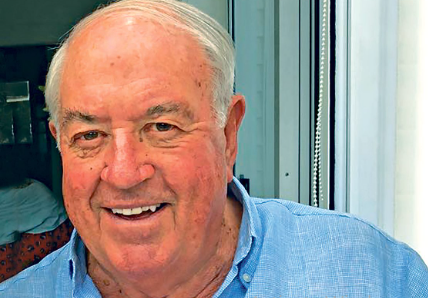Steve Jobs, renowned as a computer designer, executive, and innovator, served as an inspiration to countless individuals both personally and professionally. Co-founder of Apple Computers and former chairman of Pixar Animation Studios, Jobs left an indelible mark on the computer and animation industries, amassing a substantial fortune of $10.2 billion before his passing on October 5, 2011, at the age of 56, after an eight-year battle with pancreatic cancer.
Early Life and Beginnings
Born in San Francisco and adopted into a supportive family, Jobs’ fascination with computers and engineering blossomed from a young age, influenced by his father’s profession as a machinist and his own passion for electronics. Growing up near Palo Alto, Jobs demonstrated remarkable intellect, with teachers considering advancement through skipping grades, although his parents declined. It was during high school that Jobs crossed paths with his future business partner, Steve Wozniak, bonding over their mutual love for electronics and computer technology.
The Genesis of Apple
Following his decision to drop out of college after just one semester, Jobs embarked on a spiritual journey to India, an experience that shaped his work ethic and minimalist philosophy towards life. At the age of 21, Jobs, alongside Wozniak, founded Apple Computers in the confines of his family garage. Selling his Volkswagen bus and Wozniak parting with his scientific calculator to finance their endeavor, Jobs and Wozniak introduced consumer-friendly computers that revolutionized the industry, with the Apple II experiencing remarkable success. Apple’s market value soared to $1.2 billion on its first day of public trading in 1980.
Transition and Pixar Era
Despite the acclaim for innovations like the Macintosh, Apple faced fierce competition from IBM, prompting Jobs’ departure in 1985 after a disagreement with CEO John Sculley. Embarking on new ventures, Jobs established NeXT Inc. and invested in Pixar Animation Studios. While NeXT struggled, Pixar thrived under Jobs’ leadership, culminating in the groundbreaking success of “Toy Story” after years of perseverance and unyielding dedication.
Return to Apple and Technological Revolution
Apple’s acquisition of NeXT in 1997 marked Jobs’ return to the company as CEO. With a salary of $1 per year, Jobs revitalized Apple, spearheading the development of groundbreaking devices such as the iPod, iPhone, and iPad, transforming industries ranging from music to communication and beyond. Known for his intuitive approach to product development, Jobs emphasized the importance of understanding the human experience in crafting innovative solutions.
Legacy and Impact
Even amidst health challenges, Jobs steered Apple to unprecedented success, launching iconic products that reshaped entire industries. His visionary leadership and unwavering commitment to excellence continue to inspire entrepreneurs across various domains. Jobs’ profound impact transcends technology, fostering a culture of innovation and excellence that resonates with individuals worldwide.
Quotes and Philosophies
Throughout his career, Jobs imparted wisdom and insight through his memorable quotes, reflecting his philosophy on innovation, leadership, and life:
- “Being the richest man in the cemetery doesn’t matter to me. … Going to bed at night saying we’ve done something wonderful – that’s what matters to me.”
- “Sometimes when you innovate, you make mistakes. It is best to admit them quickly, and get on with improving your other innovations.”
- “Your time is limited, so don’t waste it living someone else’s life. Don’t be trapped by dogma – which is living with the results of other people’s thinking. Don’t let the noise of others’ opinions drown out your own inner voice. And most important, have the courage to follow your heart and intuition.”
- “Technology is nothing. What’s important is that you have a faith in people, that they’re basically good and smart, and if you give them tools, they’ll do wonderful things with them.”
- “I’m convinced that about half of what separates successful entrepreneurs from the nonsuccessful ones is pure perseverance.”
- “Remembering that you are going to die is the best way I know to avoid the trap of thinking you have something to lose. You are already naked. There is no reason not to follow your heart.”
- “I’m as proud of many of the things we haven’t done as the things we have done. Innovation is saying no to a thousand things.”
- “Be a yardstick of quality. Some people aren’t used to an environment where excellence is expected.”
Steve Jobs’ enduring legacy serves as a testament to his transformative influence on technology, business, and humanity as a whole, embodying the spirit of innovation and perseverance for generations to come.





